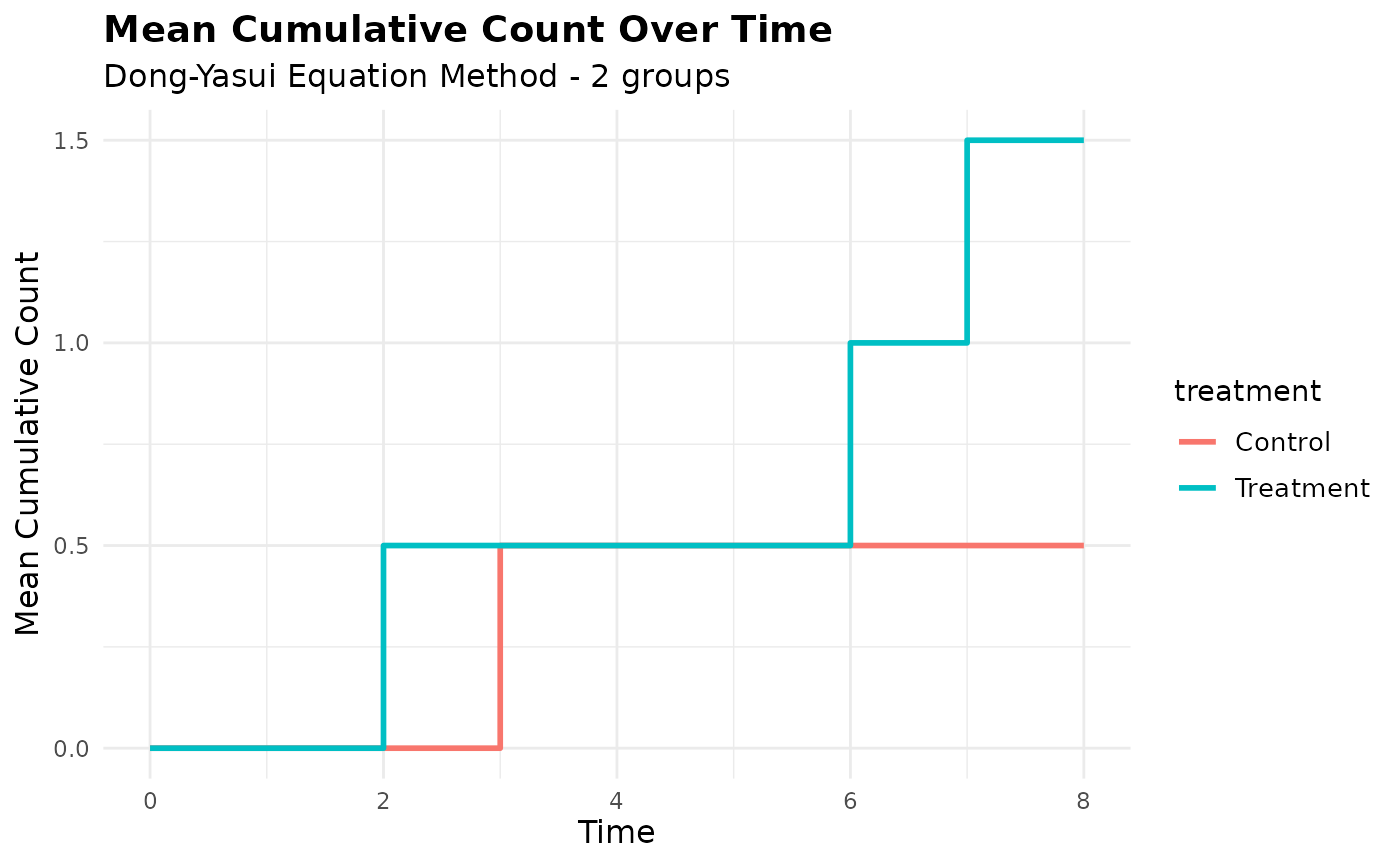For grouped mcc objects, extracts results for specified groups only.
This is useful for focusing on specific groups of interest or creating
custom visualizations.
Examples
# Create sample data with groups
library(dplyr)
df <- data.frame(
id = c(1, 2, 3, 4, 4, 4, 4, 5, 5, 6, 6, 7, 8),
time = c(8, 1, 5, 2, 6, 7, 8, 3, 3, 4, 5, 9, 2),
cause = c(0, 0, 2, 1, 1, 1, 0, 1, 2, 1, 0, 0, 2),
treatment = c("Control", "Control", "Treatment", "Treatment",
"Treatment", "Treatment", "Treatment", "Control", "Control",
"Placebo", "Placebo", "Placebo", "Placebo")
) |>
arrange(id, time)
# Grouped analysis
mcc_full <- mcc(df, "id", "time", "cause", by = "treatment")
#> ℹ Adjusted time points for events occurring simultaneously for the same subject.
# Show all groups
mcc_groups(mcc_full)
#> [1] "Control" "Treatment" "Placebo"
# Filter to specific groups
mcc_filtered <- filter_mcc(mcc_full, c("Control", "Treatment"))
mcc_groups(mcc_filtered) # Only "Control" and "Treatment"
#> [1] "Control" "Treatment"
# Plot the filtered mcc object
plot(mcc_filtered)
 # Clean up
rm(df, mcc_full, mcc_filtered)
# Clean up
rm(df, mcc_full, mcc_filtered)